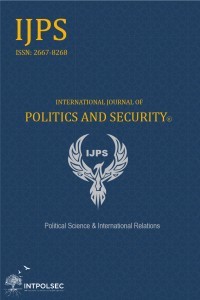A Review of Neo-Classical Realism and its Assessment of Independent and Intervening Variables in Foreign Policy Analysis
How do states assess international threats? Who decides the foreign policy alternatives? To what extent can domestic actors bargain with state leaders and influence foreign policies? These are the common questions that are faced by foreign policy administrators in any country and Bangladesh is not an exception. Neoclassical Realism (NCR) answers these common questions by filtering international imperatives through state structure. NCR helps top officials to assess probable threats, identify feasible strategies in response to those threats and extract and mobilize the societal resources necessary to implement and sustain those strategies. That’s why the advocates of NCR claim it as the theory of foreign policy. This paper identified this theory to distinguish it as a logical extension and necessary part of advancing neo-realism as well as a theory of international relations that is more prone to analyzing states’ foreign policy. The focus has been to discuss what NCR incorporates by saying independent and intervening variables to be considering issues in foreign policy analysis. The paper has been based on extensive literature reviews especially the review articles of Gideon Rose and Brian Rathbun and the scholars who contributed to the area of foreign policy.
A Review of Neo-Classical Realism and its Assessment of Independent and Intervening Variables in Foreign Policy Analysis
How do states assess international threats? Who decides the foreign policy alternatives? To what extent can domestic actors bargain with state leaders and influence foreign policies? These are the common questions that are faced by foreign policy administrators in any country and Bangladesh is not an exception. Neoclassical Realism (NCR) answers these common questions by filtering international imperatives through state structure. NCR helps top officials to assess probable threats, identify feasible strategies in response to those threats and extract and mobilize the societal resources necessary to implement and sustain those strategies. That’s why the advocates of NCR claim it as the theory of foreign policy. This paper identified this theory to distinguish it as a logical extension and necessary part of advancing neo-realism as well as a theory of international relations that is more prone to analyzing states’ foreign policy. The focus has been to discuss what NCR incorporates by saying independent and intervening variables to be considering issues in foreign policy analysis. The paper has been based on extensive literature reviews especially the review articles of Gideon Rose and Brian Rathbun and the scholars who contributed to the area of foreign policy.
___
- Associate Professor Dr. Özlem Kaygusuz
Department of International Relations
Ankara University
Ankara, Turkey
